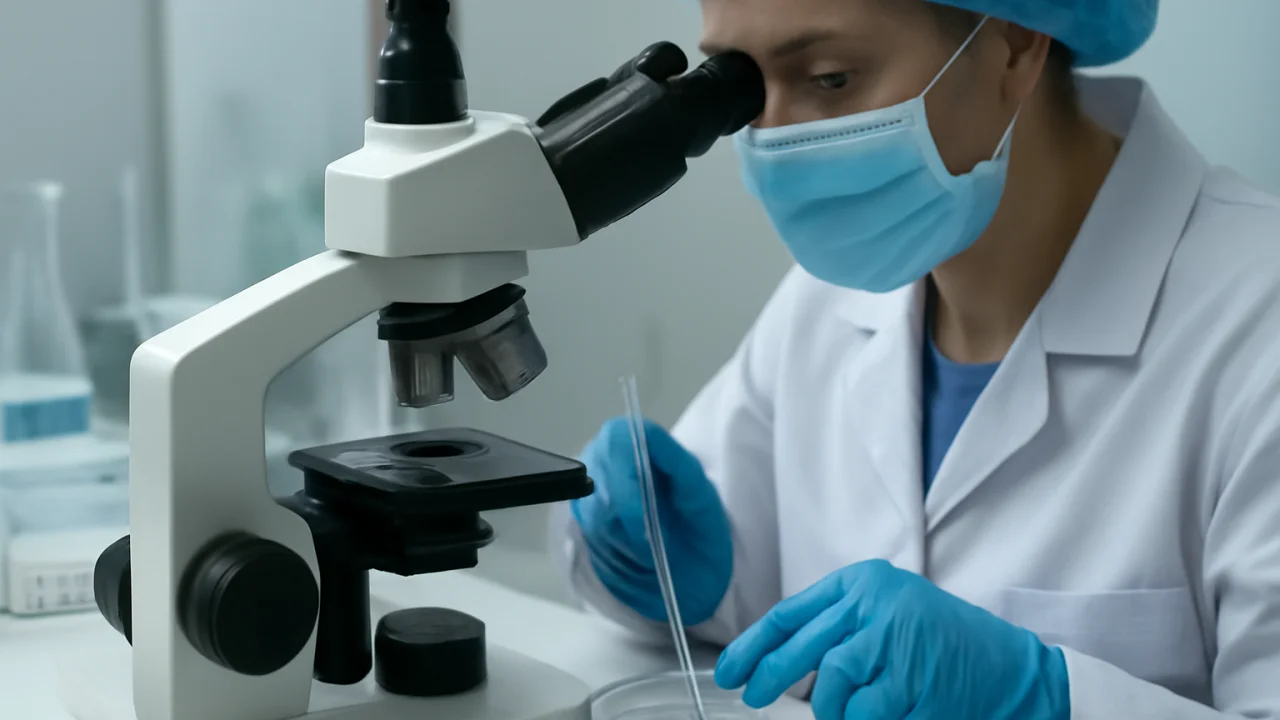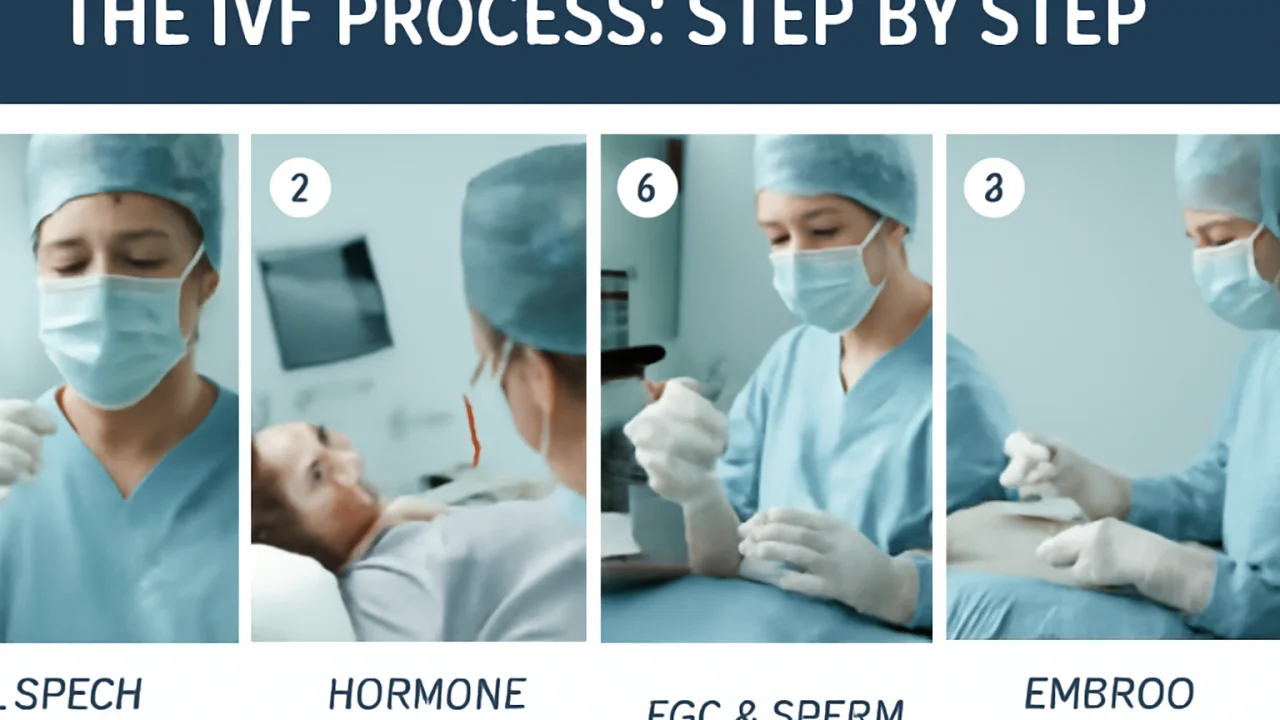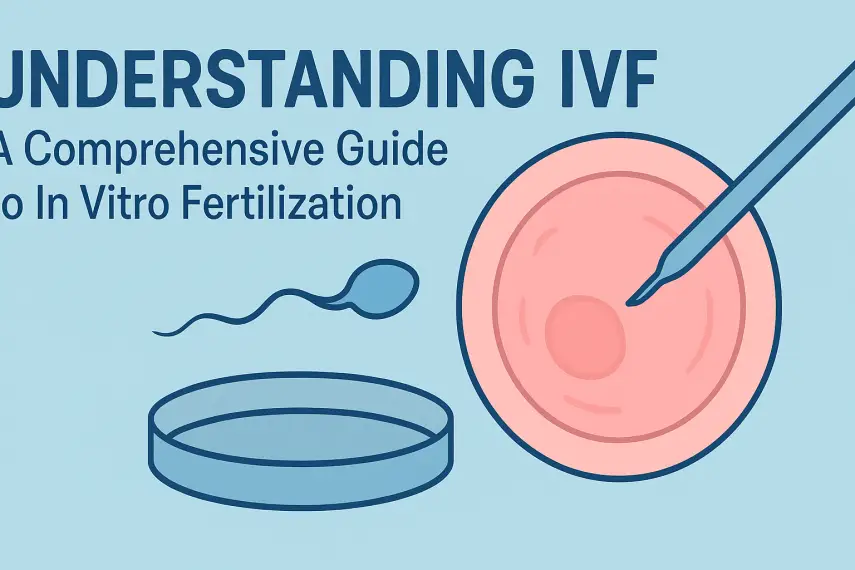
Understanding IVF: A Comprehensive Guide to In Vitro Fertilization
📑 Contents
Understanding IVF: A Comprehensive Guide to In Vitro Fertilization
In Vitro Fertilization (IVF) has transformed the landscape of fertility treatment, offering hope to millions of individuals and couples facing challenges in conceiving. Whether you’re considering IVF or simply want to understand how it works, this article provides a practical, up-to-date overview of the IVF process, success rates, costs, risks, and more.
What is IVF?

IVF, or In Vitro Fertilization, is an assisted reproductive technology (ART) where an egg is fertilized by sperm outside the body, in a laboratory setting. The resulting embryo is then transferred to the uterus, with the aim of achieving a successful pregnancy. IVF is often recommended for infertility caused by blocked fallopian tubes, male factor infertility, endometriosis, unexplained infertility, or when other fertility treatments have failed.
Who Can Benefit from IVF?

IVF has helped a wide range of patients, including:
- Women with blocked, damaged, or absent fallopian tubes
- Couples with male infertility (low sperm count, motility, or morphology)
- Individuals with ovulation disorders or endometriosis
- Couples with unexplained infertility
- Individuals with genetic disorders who wish to prevent transmission to offspring
- Same-sex couples and single parents using donor eggs, sperm, or embryos
The IVF Process: Step by Step

Understanding the stages of IVF can help demystify the process and set realistic expectations. IVF is typically carried out in several key stages:
1. Ovarian Stimulation
Fertility medications are prescribed to stimulate the ovaries, encouraging the development of multiple eggs. Regular ultrasounds and blood tests monitor progress.
2. Egg Retrieval
Once the eggs are mature, a minor surgical procedure (transvaginal ultrasound aspiration) is performed to collect them from the ovaries.
3. Fertilization
The retrieved eggs are combined with sperm in the laboratory. Fertilization may occur naturally or via Intracytoplasmic Sperm Injection (ICSI), where a single sperm is injected directly into an egg.
4. Embryo Culture
Fertilized eggs (embryos) are monitored for several days as they develop. The best-quality embryos are selected for transfer.
5. Embryo Transfer
One or more embryos are transferred into the uterus, typically 3-5 days after fertilization. This is a simple, outpatient procedure.
6. Pregnancy Test
About two weeks after embryo transfer, a blood test is performed to determine if pregnancy has occurred.
| Stage | Typical Duration | Key Activities |
|---|---|---|
| Ovarian Stimulation | 8-14 days | Hormonal injections, monitoring |
| Egg Retrieval | 1 day | Outpatient procedure |
| Fertilization & Embryo Culture | 3-6 days | Lab fertilization, embryo selection |
| Embryo Transfer | 1 day | Embryo placement in uterus |
| Pregnancy Test | 14 days post-transfer | Blood test for pregnancy |
IVF Success Rates: What to Expect
Success rates for IVF depend on several factors, primarily age, cause of infertility, and clinic expertise. According to the latest data from the Society for Assisted Reproductive Technology (SART) and CDC:
- Women under 35: Live birth rates per IVF cycle are approximately 40-50%.
- Women aged 35-37: 30-40% live birth rate per cycle.
- Women aged 38-40: 20-30% live birth rate per cycle.
- Women over 40: 5-15% live birth rate per cycle.
Other factors influencing success include embryo quality, sperm health, and uterine receptivity. Multiple cycles may be necessary to achieve pregnancy.
Costs of IVF: What Are the Expenses?
IVF is a significant financial investment. Costs vary based on location, clinic, medications, and additional procedures (like ICSI, preimplantation genetic testing, or use of donor eggs/sperm).
| Service | Estimated Cost (USD) |
|---|---|
| IVF Cycle (base) | $12,000 - $18,000 |
| Medications | $3,000 - $6,000 |
| ICSI (if needed) | $1,500 - $3,000 |
| Genetic Testing (PGT-A/PGT-M) | $3,000 - $7,000 |
| Donor Egg/Sperm (if needed) | $5,000 - $15,000 |
| Total Potential Cost | $15,000 - $30,000+ |
Some insurance plans may partially cover IVF, but many do not. Always confirm your coverage and inquire about financing options at your chosen clinic.
Risks and Considerations
IVF is generally safe, but like any medical procedure, it carries potential risks:
- Ovarian Hyperstimulation Syndrome (OHSS): Over-response to fertility drugs can cause swollen, painful ovaries.
- Multiple Pregnancies: Transferring more than one embryo increases the risk of twins or triplets, leading to higher pregnancy risks.
- Egg Retrieval Complications: Rarely, bleeding, infection, or damage to surrounding organs can occur.
- Emotional Stress: IVF can be physically and emotionally demanding, especially if multiple cycles are needed.
Discuss risks and benefits with your fertility specialist, and consider counseling or support groups to help manage stress.
Latest Advances in IVF
Ongoing research and technology continue to improve IVF outcomes. Some notable advances include:
- Preimplantation Genetic Testing (PGT): Allows screening embryos for genetic conditions, increasing the chances of a healthy pregnancy.
- Time-lapse Embryo Imaging: Monitors embryo development in real-time, improving selection accuracy.
- Egg Freezing (Oocyte Cryopreservation): Enables women to preserve fertility for future use.
- Personalized Stimulation Protocols: Tailored medication regimens for better ovarian response and reduced side effects.
Talk to your clinic about which technologies may be appropriate for your situation.
Preparing for IVF: Tips for Success
Maximizing your chances of IVF success involves both medical and lifestyle preparation:
- Maintain a healthy weight and balanced diet
- Avoid smoking, excessive alcohol, and recreational drugs
- Manage stress with relaxation techniques or support groups
- Take prenatal vitamins, especially folic acid, as recommended
- Follow your doctor’s instructions on medications and appointments
Open communication with your partner and medical team is essential throughout the journey.
Frequently Asked Questions (FAQs)
1. How many IVF cycles are usually needed to achieve pregnancy?
The number varies. Some patients conceive on their first attempt, while others may require multiple cycles. On average, most couples achieve success within three IVF cycles.
2. Is IVF painful?
Most steps in IVF are not painful, though some discomfort from injections and mild cramping after egg retrieval is common. Sedation is used during retrieval to minimize discomfort.
3. Can IVF guarantee a healthy baby?
IVF cannot guarantee a healthy baby,











